Two studies elucidate key mechanisms limiting the efficiency and stability of organic light-emitting diodes.
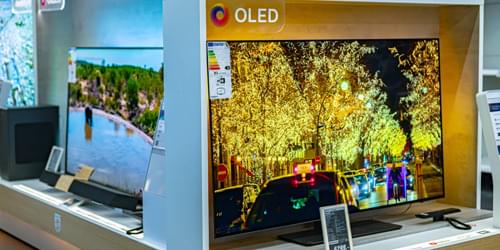

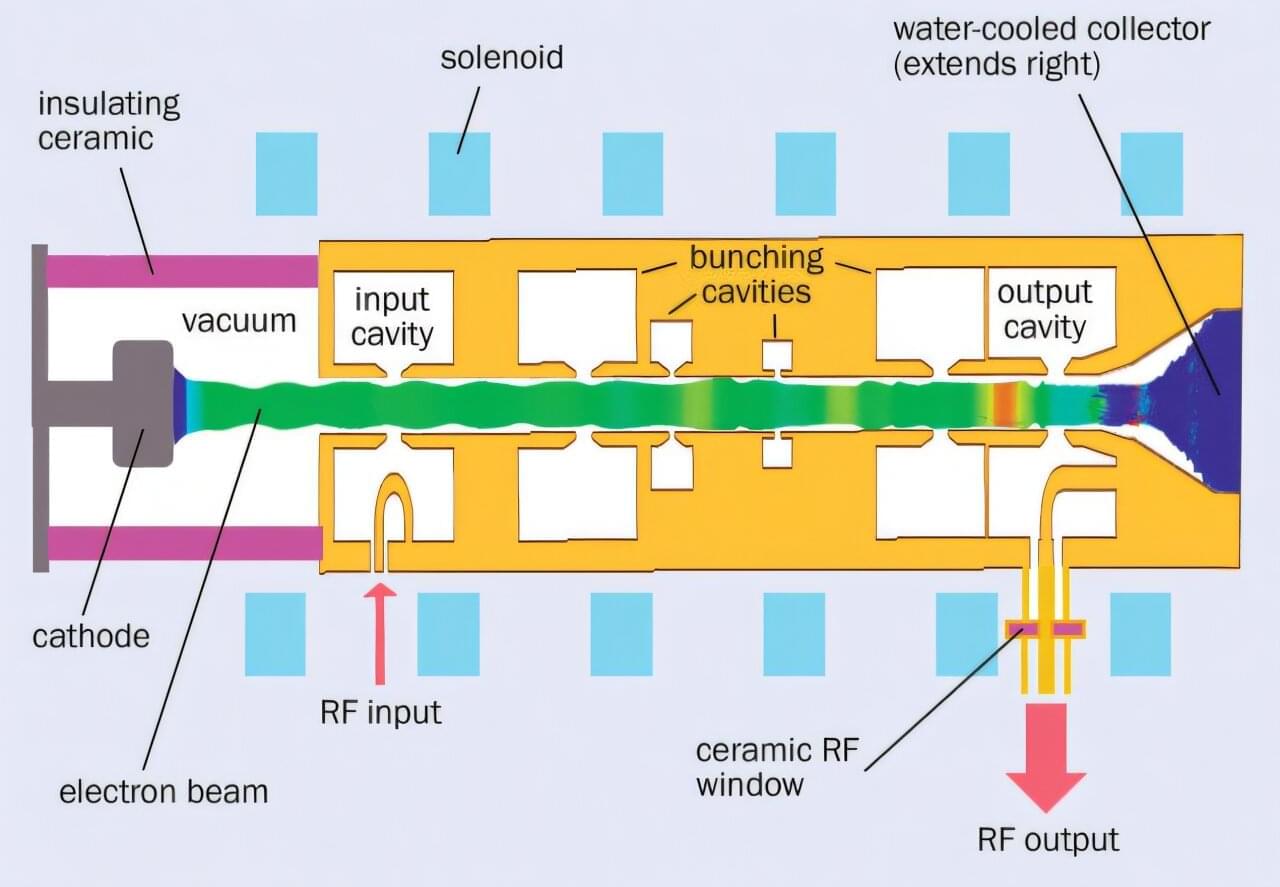
The Higgs boson is the most intriguing and unusual object yet discovered by fundamental science. There is no higher experimental priority for particle physics than building an electron–positron collider to produce it copiously and study it precisely.
Given the importance of energy efficiency and cost effectiveness in the current geopolitical context, this gives unique strategic importance to developing a humble technology called the klystron—a technology that will consume the majority of site power at every major electron–positron collider under consideration, but which has historically only achieved 60% energy efficiency.
The klystron was invented in 1937 by two American brothers, Russell and Sigurd Varian. The Varians wanted to improve aircraft radar systems. At the time, there was a growing need for better high-frequency amplification to detect objects at a distance using radar, a critical technology in the lead-up to World War II.
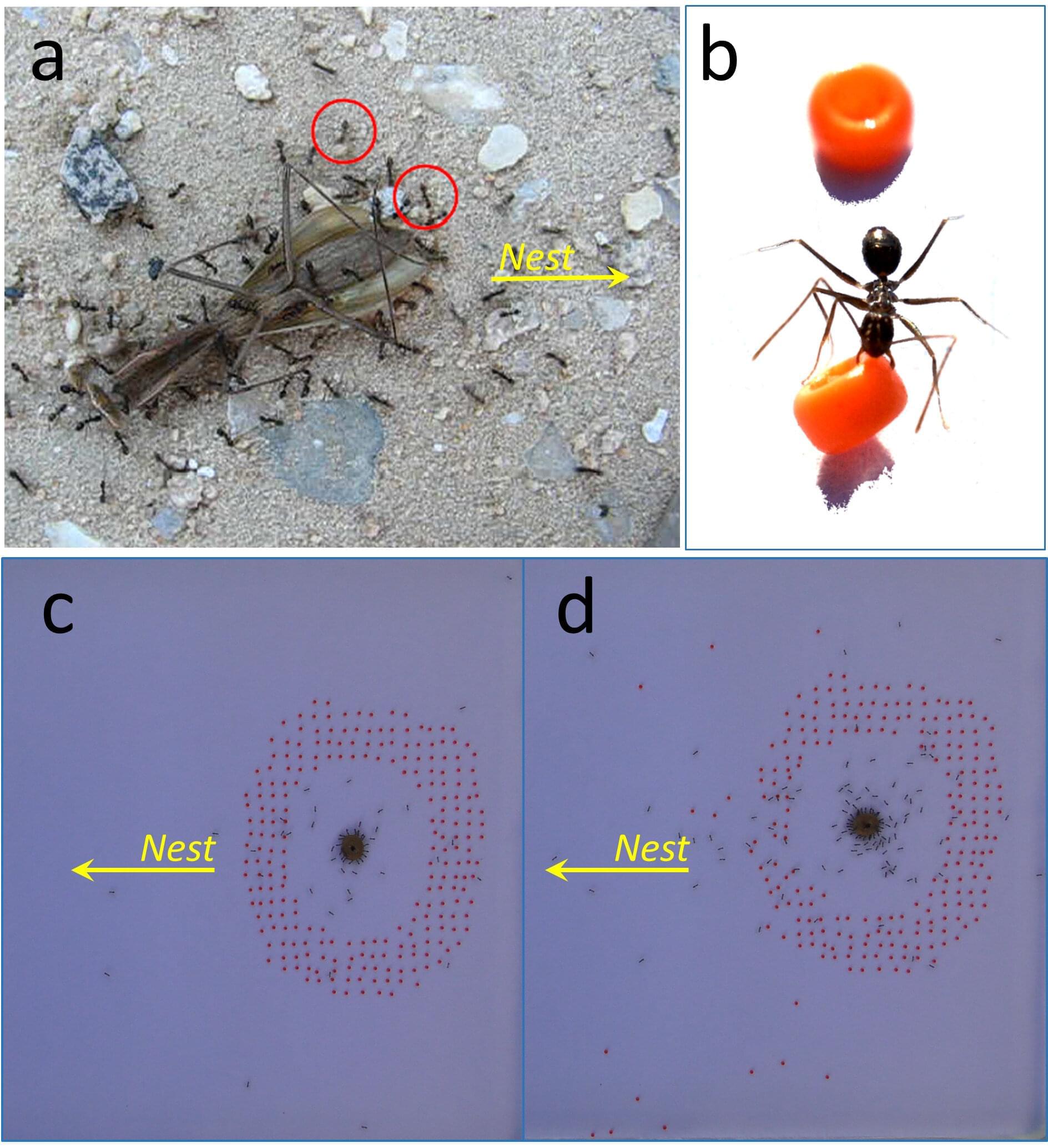
Among the tens of thousands of ant species, incredible “intelligent” behaviors like crop culture, animal husbandry, surgery, “piracy,” social distancing, and complex architecture have evolved.
Yet at first sight, the brain of an ant seems hardly capable of such feats: it is about the size of a poppy seed, with only 0.25m to 1m neurons, compared to 86bn for humans.
Now, researchers from Israel and Switzerland have shown how “swarm intelligence” resembling advance planning can nevertheless emerge from the concerted operation of many of these tiny brains. The results are published in Frontiers in Behavioral Neuroscience.

The James Webb Space Telescope (JWST) has unlocked the depths of interstellar space with unprecedented clarity, offering humanity a high-resolution window into the cosmos. Harnessing this newfound capability, an international team of researchers set out to investigate how polycyclic aromatic hydrocarbons (PAHs)—organic molecules and key players in cosmic chemistry—survive the harsh conditions of space and uncover the mechanism behind their resilience.
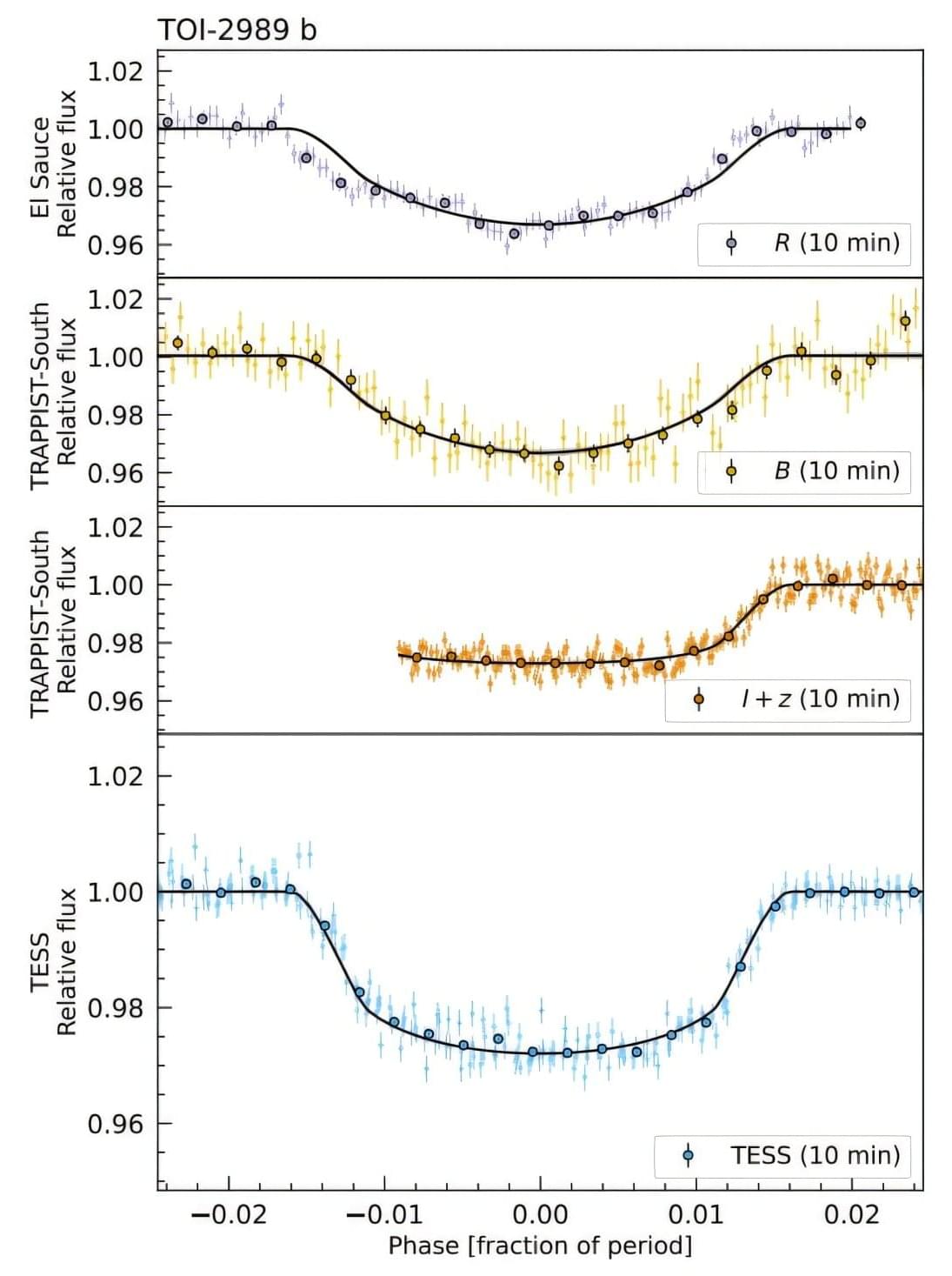
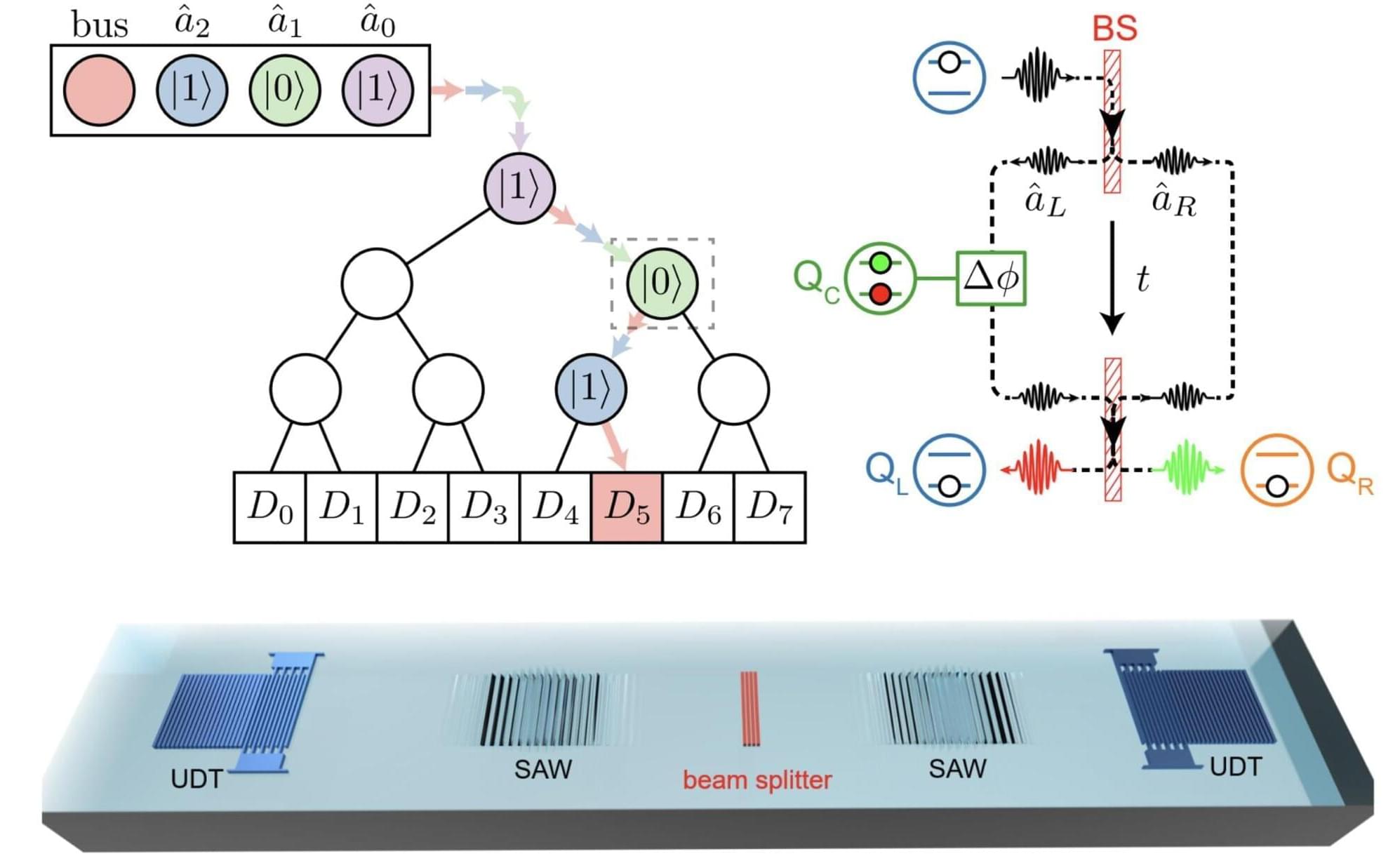
Recent technological advances have opened new exciting possibilities for the development of cutting-edge quantum devices, including quantum random access memory (QRAM) systems. These are memory architectures specifically meant to be integrated inside quantum computers, which can simultaneously retrieve data from multiple ‘locations’ leveraging a quantum effect known as coherent superposition.
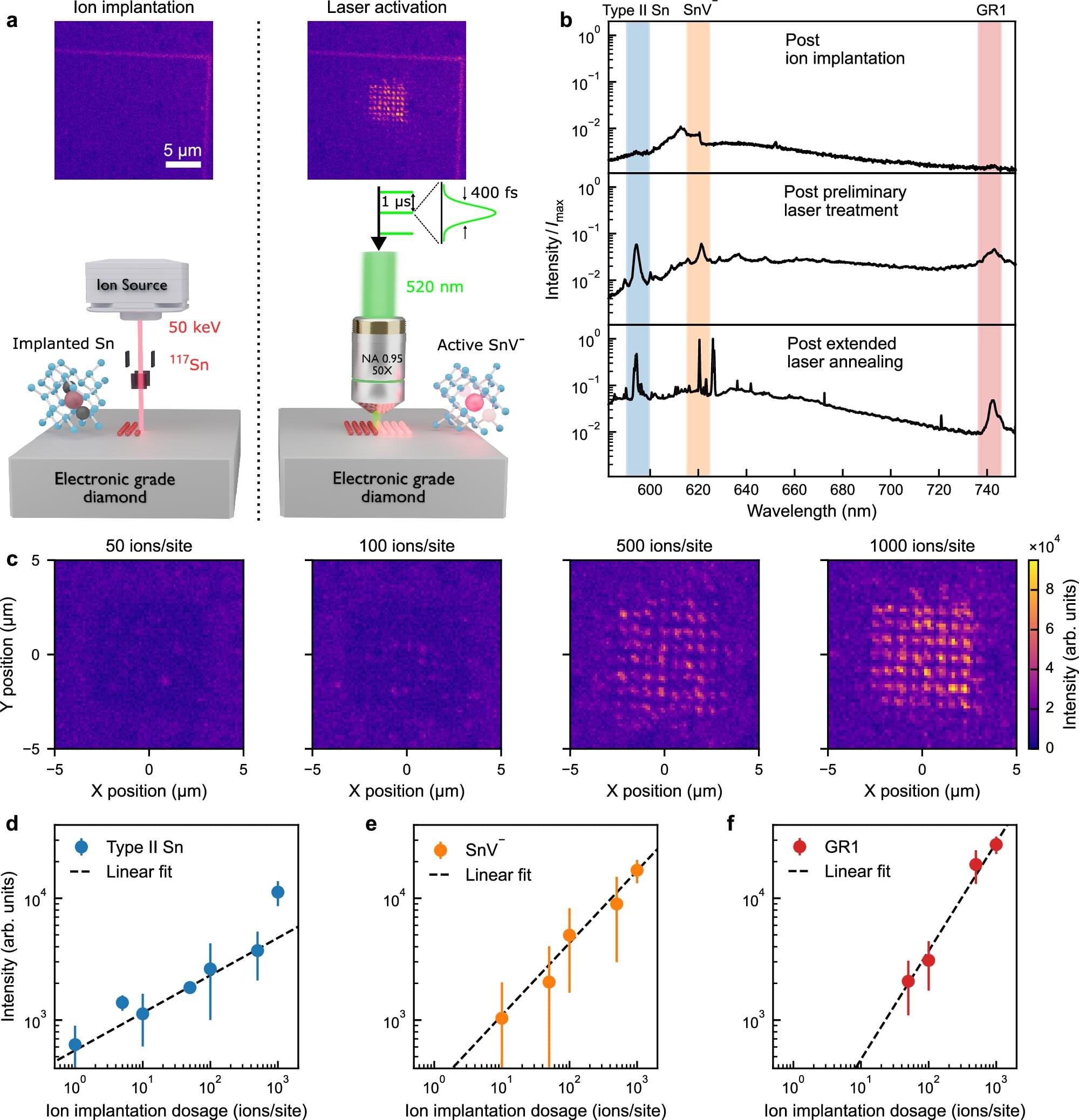
A new study led by researchers at the Universities of Oxford, Cambridge and Manchester has achieved a major advance in quantum materials, developing a method to precisely engineer single quantum defects in diamond—an essential step toward scalable quantum technologies. The results have been published in the journal Nature Communications.
Using a new two-step fabrication method, the researchers demonstrated for the first time that it is possible to create and monitor, “as they switch on,” individual Group-IV quantum defects in diamond—tiny imperfections in the diamond crystal lattice that can store and transmit information using the exotic rules of quantum physics.
By carefully placing single tin atoms into synthetic diamond crystals and then using an ultrafast laser to activate them, the team achieved pinpoint control over where and how these quantum features appear. This level of precision is vital for making practical, large-scale quantum networks capable of ultra-secure communication and distributed quantum computing to tackle currently unsolvable problems.
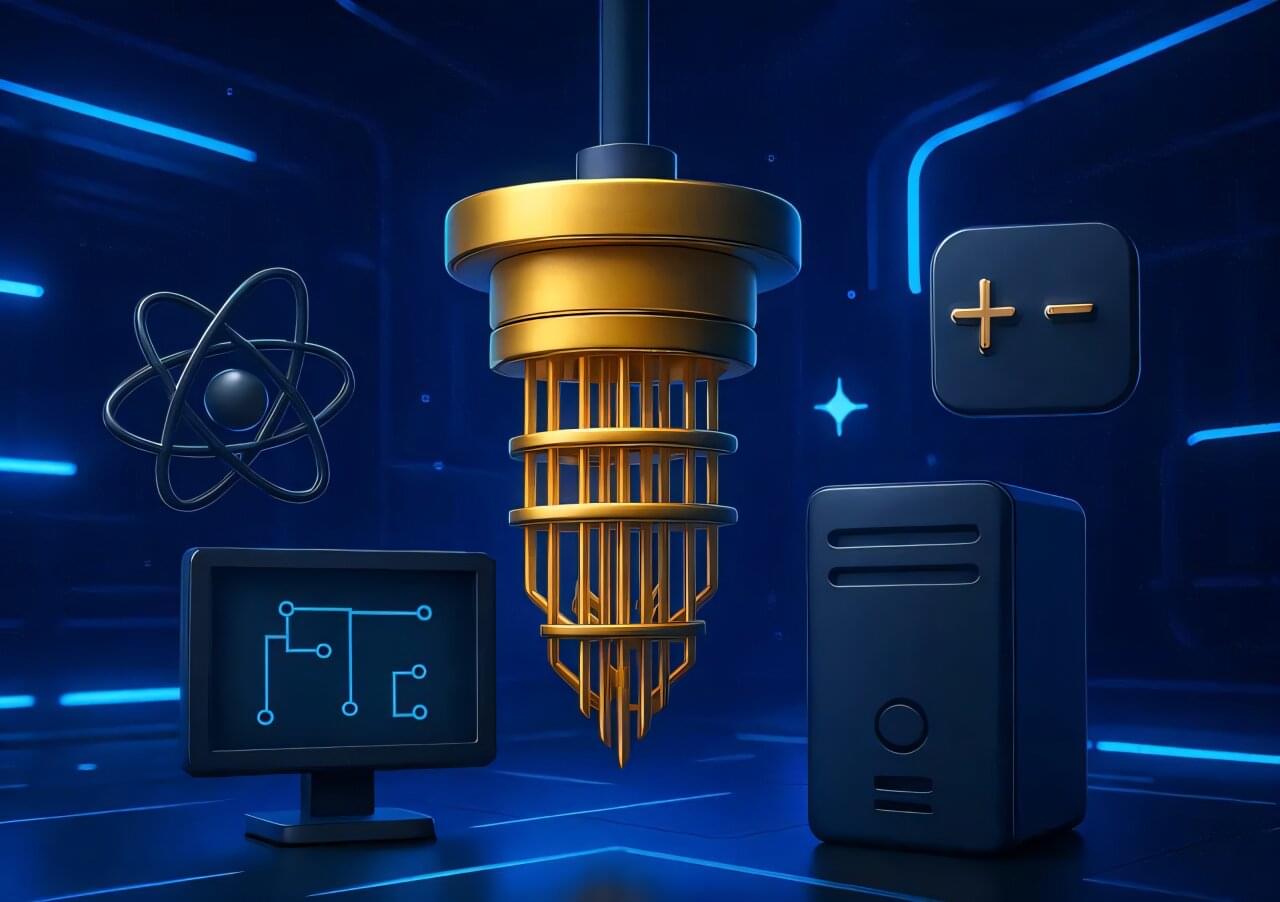
As quantum computing develops, scientists are working to identify tasks for which quantum computers have a clear advantage over classical computers. So far, researchers have only pinpointed a handful of these problems, but in a new paper published in Physical Review Letters, scientists at Los Alamos National Laboratory have added one more problem to this very short list.
“One of the central questions that faces quantum computing is what classes of problems they can most efficiently solve but classical computers cannot,” says Marco Cerezo, the Los Alamos team’s lead scientist. “At the moment, this is the Holy Grail of quantum computing, because you can count on two hands such problems. In this paper, we’ve just added another.”
Quantum computing harnesses the unique laws of quantum physics, such as superposition, entanglement and interference, which allow for information processing capabilities beyond those of classical devices. When fully realized, quantum computing promises to make advancements in cryptography, simulations of quantum systems and data analysis, among many other fields. But before this can happen, researchers still need to develop the foundational science of quantum computing.
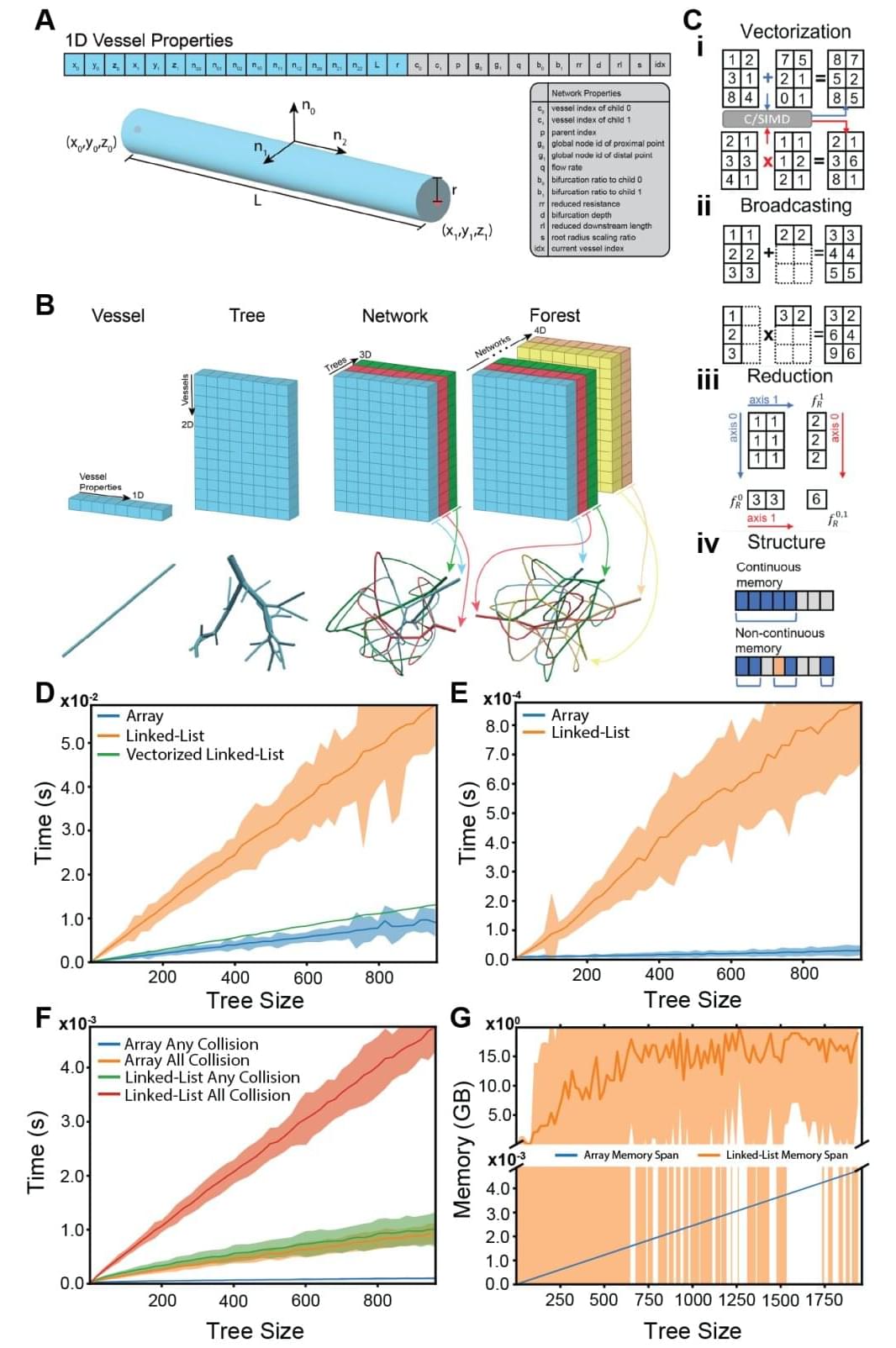
There are more than 100,000 people on organ transplant lists in the U.S., some of whom will wait years to receive one—and some may not survive the wait. Even with a good match, there is a chance that a person’s body will reject the organ. To shorten waiting periods and reduce the possibility of rejection, researchers in regenerative medicine are developing methods to use a patient’s own cells to fabricate personalized hearts, kidneys, livers, and other organs on demand.
Ensuring that oxygen and nutrients can reach every part of a newly grown organ is an ongoing challenge. Researchers at Stanford have created new tools to design and 3D print the incredibly complex vascular trees needed to carry blood throughout an organ. Their platform, published June 12 in Science, generates designs that resemble what we actually see in the human body significantly faster than previous attempts and is able to translate those designs into instructions for a 3D printer.
“The ability to scale up bioprinted tissues is currently limited by the ability to generate vasculature for them—you can’t scale up these tissues without providing a blood supply,” said Alison Marsden, the Douglas M. and Nola Leishman Professor of Cardiovascular Diseases, professor of pediatrics and of bioengineering at Stanford in the Schools of Engineering and Medicine and co-senior author on the paper. “We were able to make the algorithm for generating the vasculature run about 200 times faster than prior methods, and we can generate it for complex shapes, like organs.”
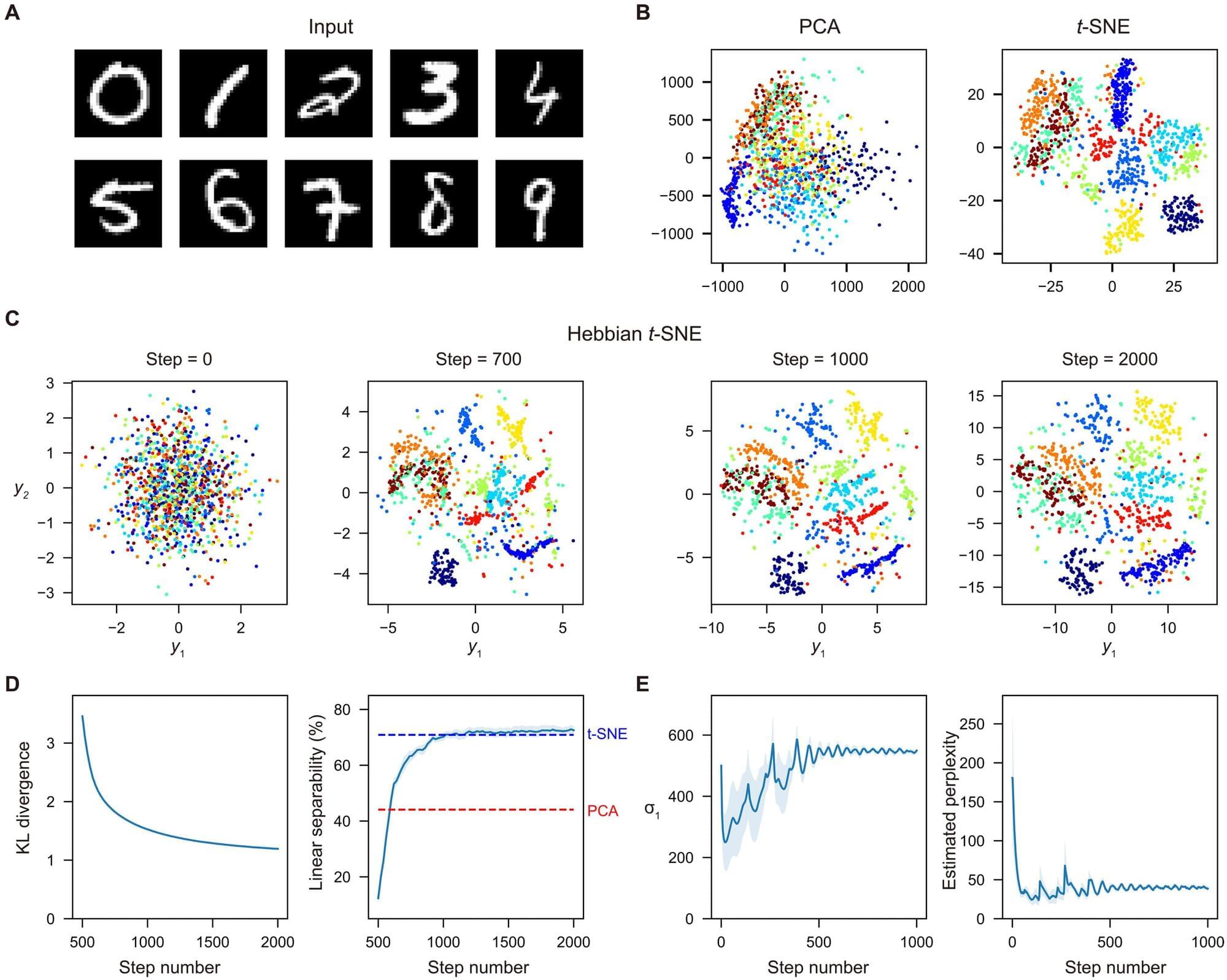
Two RIKEN researchers have used a scheme for simplifying data to mimic how the brain of a fruit fly reduces the complexity of information about smells it perceives. This could also help enhance our understanding of how the human brain processes sensory data.
The work is published in the journal Science Advances.
Sensors related to our five senses are constantly providing huge amounts of information to the human brain. It would quickly become overloaded if it tried to process that sensory information without first simplifying it by reducing its number of dimensions.